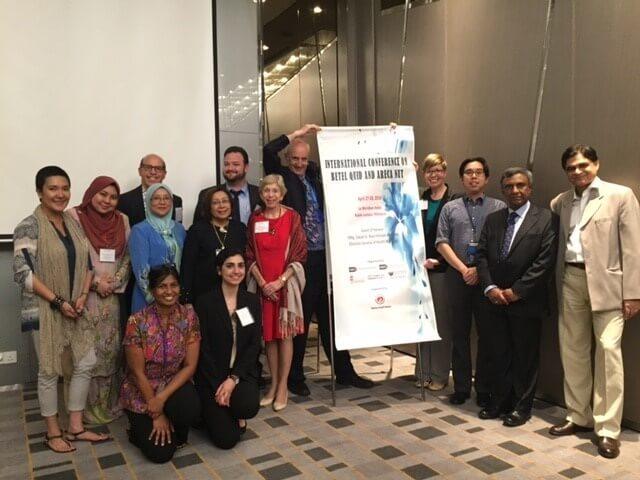New Lancet Oncology Publication: Defining a Research and Policy Agenda for Betel Quid and Areca Nut
, by Hedieh Mehrtash
Betel quid and areca nut, typically made up of a mixture of areca nut and slaked lime wrapped in a betel leaf with added flavorings, is a known risk factor for many oral and other associated cancers. There are more than 600 million betel quid or areca nut users worldwide (or 10% of the world’s population), making it a critical global cancer control issue. With its use steeped in culture and tradition, the use of betel quid and areca nut is widely unregulated, and poses a significant and understudied health threat to the Asia-Pacific region where prevalence is high. Unlike many forms of smoked tobacco, the two are widely used by women in regions where common. Betel quid and areca use also extends beyond the Asia-Pacific region to diaspora and migrant communities in the U.S., South Africa, and parts of Europe and the Middle East.
After nearly two years of effort, the National Cancer Institute Center for Global Health, in coordination with global experts on betel quid and areca nut research, have published the findings from the International Conference on Betel Quid and Areca Nut (held in Kuala Lumpur, Malaysia on April 27-28, 2016) in Lancet Oncology.
The Lancet Oncology policy review, Defining a Global Research and Policy Agenda for Betel Quid and Areca Nut, highlights evidence on the harms of both areca nut and betel quid use, particularly in the Asia-Pacific region. The authors from the National Cancer Institute included: Ms. Hedieh Mehrtash, Ms. Kalina Duncan, Dr. Mark Parascandola, Dr. Paul Pearlman and Dr. Edward L. Trimble.
The topic areas covered in the review include: 1) Products, patterns of use and epidemiology of betel quid/areca nut related cancers; 2) Biology of addiction and use; 3) Behavioral factors in addiction and dependence; 4) Prevention and control (including cessation); 5) Screening and early diagnosis of oral cancers; and 6) Policy and economics.
Panel: Recommendations for future research directions on betel quid and areca nut use
- Characterization of the types of betel quid and areca net products and their use across populations in the Asia-Pacific region
- Strengthen the understanding of the biological and behavioural basis of areca nut dependence to aid in the development of effective prevention and cessation interventions
- Development and evaluation of targeted betel quid and areca nut use prevention and cessation methods that include the evaluation of existing prevention campaigns and messages, and defining the role of health-care providers in prevention and cessation interventions
- Study of the cultural and social conventions that motivate the use of betel quid and areca nut products
- Quantification of the dose-response relationships between various betel quid and areca nut products, with and without tobacco, and the risk of oral and oesophageal cancers
- Development, evaluation, and implementation of effective screening and early diagnosis programmes for oral cancers
- Completion and implementation of translational research to best apply effective policy interventions in tobacco control to this diverse field to mitigate the potential risk of disease
Moreover, the authors collectively state that unlike tobacco control, there is no treaty or framework to guide policy on reducing the burden of areca nut and betel quid use. to the review petitions for the need of guidance similar to the MPOWER strategies which are part of the WHO Framework Convention on Tobacco Control: however, this will require focus on both areca nut and betel quid.
Most recently, as an outcome of the efforts around betel quid and areca nut, the World Health Organization’s Pacific Regional Office held a workshop, Subregional Workshop on Tobacco and Betel Nut, that presented an opportunity to discuss the importance of the key research recommendations and the current evidence on the impact of areca nut and tobacco use on health, in an effort to support countries in the region develop evidence-based strategies for betel quid and areca nut control.
It is our hope that our contribution to the body of knowledge produced on betel quid and areca nut-associated cancers will facilitate new research collaborations and projects among investigators from all countries.

